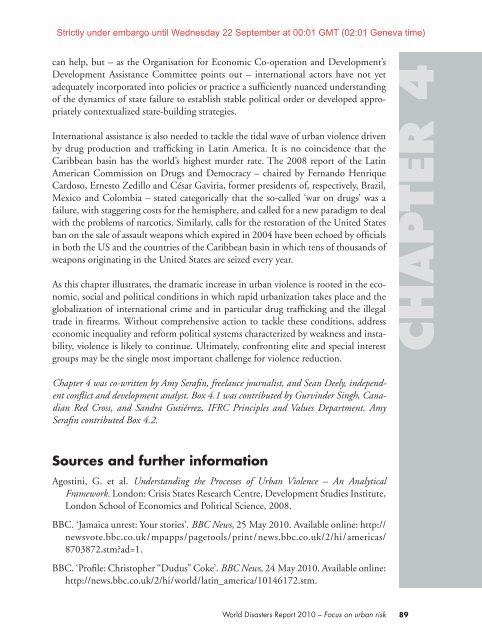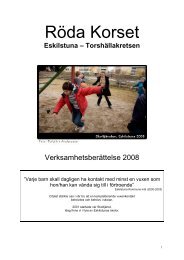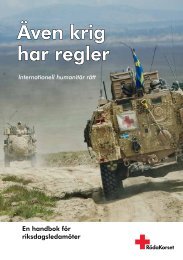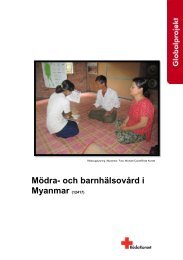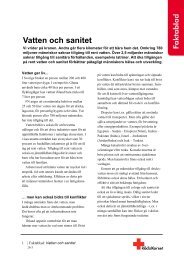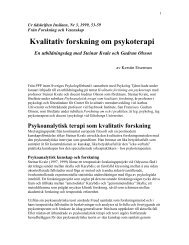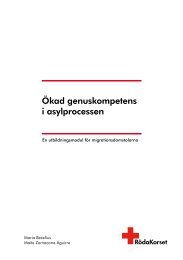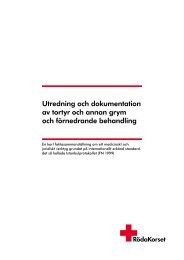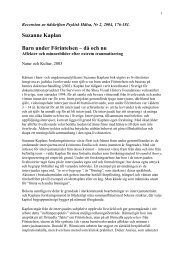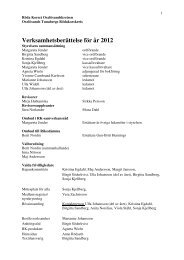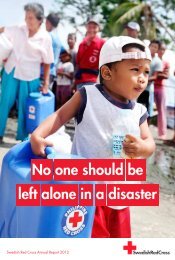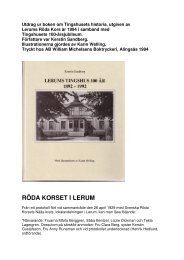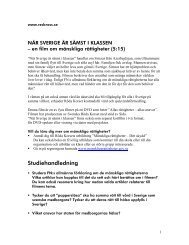Strictly under embargo until Wednesday 22 September at 00:01 GMT (02:01 Geneva time)human rights standards and humanitarian principlesinto their work.The IFRC promotes the Youth as Agents ofBehavioural Change programme, which inviteschildren to participate in role-playing games orvisualization exercises and then discuss their emotions.For example, a group forms a circle andprevents others from breaking through, a gamethat teaches empathy for excluded immigrants.The games are an instinctive, non-cognitiveway to learn compassion, active listening, criticalthinking, non-judgement, mediation and apeaceful resolution of tensions. Games andexercises are adapted to meet the needs andchallenges of each national context and peereducation is essential. “The programme is aboutchanging mindsets, attitudes and behaviour ina society and how youth can play a leadershiprole in that,” said IFRC’s Katrien Beeckman, whofounded the programme. The future of urban violenceAt best, however, these strategies can only hope to lessen the impact of violence in thetargeted communities. This is not to deny the important progress that has been madethrough community-centred approaches and development initiatives. For example, theadoption of targeted social programmes that deal directly with the problem of poverty,such as the Benazir Bhutto Income Support Programme in Pakistan, Progresiva in Mexicoor Bolsa Familia in Brazil and other conditional cash transfer schemes, have helped reduceincome inequality in targeted communities. But these gains are threatened by globaleconomic conditions, ageing populations and the failure to extend the benefits throughreforms that improve the quality and reach of health and education services nationally. Forexample, while developed countries regularly spend up to 18 per cent of total governmentexpenditure on health, Kenya spends only 6.1 per cent, Jamaica barely 4.2 per cent andPakistan a paltry 1.3 per cent. And while important progress has been made in the numberof children attending primary and secondary school education, the quality is oftenappalling. In Brazil where 70.4 per cent of the population is qualified as ‘low educationattainment’ in the UN Development Programme’s 2009 Human Development Index, aquarter of the education budget is spent on free university education while primary andsecondary education is neglected. In parts of Pakistan, the female literacy rate is 3 per cent.Regardless of how sophisticated the economic models used to develop governmentstrategies to cushion the effects of economic crisis and support income redistributionare, no amount of social spending or development programming innovations will beable to withstand the corrosive impact of corruption or to resist being derailed by elitegroups if the political system does not establish equality before the law. The principlethat the law of the land should apply equally to all is a cornerstone of a free societyand one which is often markedly absent in countries where urban violence is rife. Thediscretionary application of tax codes, zoning laws, public procurement and contractingregulations, criteria for public appointments, restrictions on the exploitation ofnatural resources and even court rulings, benefits the few and establishes a neo-feudalhierarchy of elite groups, special interests and favoured individuals, creating one of themost powerful incentives for widespread crime and violence. International assistance88
Strictly under embargo until Wednesday 22 September at 00:01 GMT (02:01 Geneva time)can help, but – as the Organisation for Economic Co-operation and Development’sDevelopment Assistance Committee points out – international actors have not yetadequately incorporated into policies or practice a sufficiently nuanced understandingof the dynamics of state failure to establish stable political order or developed appropriatelycontextualized state-building strategies.International assistance is also needed to tackle the tidal wave of urban violence drivenby drug production and trafficking in Latin America. It is no coincidence that theCaribbean basin has the world’s highest murder rate. The 2008 report of the LatinAmerican Commission on Drugs and Democracy – chaired by Fernando HenriqueCardoso, Ernesto Zedillo and César Gaviria, former presidents of, respectively, Brazil,Mexico and Colombia – stated categorically that the so-called ‘war on drugs’ was afailure, with staggering costs for the hemisphere, and called for a new paradigm to dealwith the problems of narcotics. Similarly, calls for the restoration of the United Statesban on the sale of assault weapons which expired in 2004 have been echoed by officialsin both the US and the countries of the Caribbean basin in which tens of thousands ofweapons originating in the United States are seized every year.As this <strong>chapter</strong> illustrates, the dramatic increase in urban violence is rooted in the economic,social and political conditions in which rapid urbanization takes place and theglobalization of international crime and in particular drug trafficking and the illegaltrade in firearms. Without comprehensive action to tackle these conditions, addresseconomic inequality and reform political systems characterized by weakness and instability,violence is likely to continue. Ultimately, confronting elite and special interestgroups may be the single most important challenge for violence reduction.Chapter 4 was co-written by Amy Serafin, freelance journalist, and Sean Deely, independentconflict and development analyst. Box 4.1 was contributed by Gurvinder Singh, CanadianRed Cross, and Sandra Gutiérrez, IFRC Principles and Values Department. AmySerafin contributed Box 4.2.Sources and further informationAgostini, G. et al. Understanding the Processes of Urban Violence – An AnalyticalFramework. London: Crisis States Research Centre, Development Studies Institute,London School of Economics and Political Science, 2008.BBC. ‘Jamaica unrest: Your stories’. BBC News, 25 May 2010. Available online: http://newsvote.bbc.co.uk / mpapps / pagetools / print / news.bbc.co.uk/2/hi / americas/8703872.stm?ad=1.BBC. ‘Profile: Christopher “Dudus” Coke’. BBC News, 24 May 2010. Available online:http://news.bbc.co.uk/2/hi / world / latin_america/10146172.stm.World Disasters Report 2010 – Focus on urban risk89


